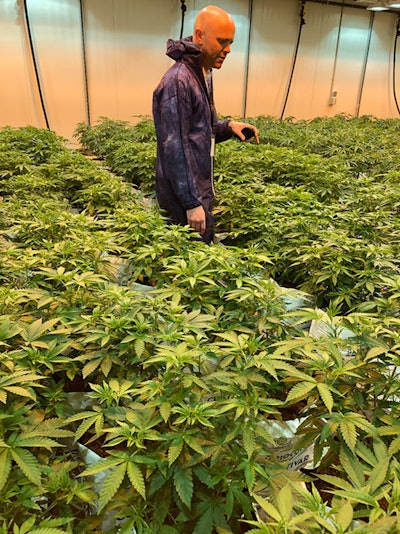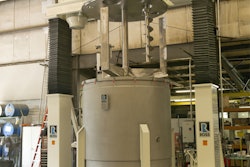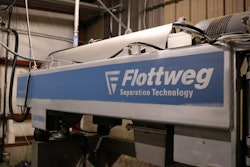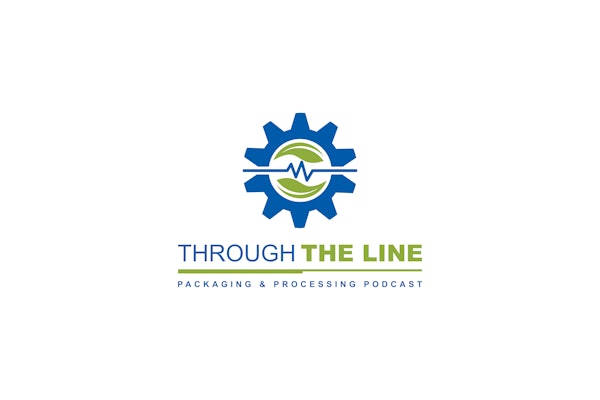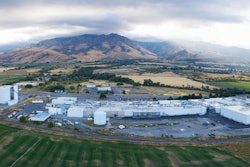Jim McCabe used to be an engineer, but today he is the founder and owner of Milwaukee Brewing, a craft beer company that produces local artisan-style products with sustainability and business ethics in mind. Patrick Wlaznak used to be a banker, but now he’s the co-founder of Soulshine Cannabis, an indoor grower/processor based in Renton, Wash., that is focused on producing premium genetic strains of marijuana. Though their products are different, both men are facing the same primary problem: how to scale and maintain quality in new markets that are experiencing substantial growth.
Milwaukee Brewing has been around since 1997, right at the boom of the craft beer movement. Though overall U.S. beer volume sales were down 1 percent in 2017, according to the Brewers Association, craft sales continued to grow at a rate of 5 percent by volume, reaching 12.7 percent of the U.S. beer market.
Cannabis, on the other hand, is a brand new market. The recreational use of marijuana became legal in Canada in October. In the U.S., despite the fact that only a handful of states have passed medical and recreational legislation and cannabis remains illegal under federal law, it is a budding business. In 2017, the U.S. legal cannabis industry generated an estimated $8.3 billion in consumer sales, and annual sales are projected to grow at a compound annual growth rate (CAGR) of 13.7 percent over the next several years, to reach more than $23 billion by 2025, according to New Frontier Data, a cannabis business analytics company.
Whether it’s craft beer, craft whiskey, cannabis, kombucha or the keto diet, competing in emerging markets is complex because the business typically starts small but, as the trend catches on, grows exponentially in a short amount of time. It’s not just entrepreneurs exploring new markets, but big brands as well. For example, Victor, N.Y.-based Constellation Brands, the parent company of signature beers Corona and Modelo, made a $4 billion investment in Canadian company Canopy Growth, entrenching itself in Canada’s legal cannabis market and positioning itself for the U.S. market when the time is right. Similarly, Denver-based brewer Molson Coors recently entered into a deal through its Canadian unit to develop cannabis-infused beverages and it also announced the acquisition of California-based Clearly Kombucha last year.
As competition heats up, the people behind the smaller, up-and-coming brands are realizing that the only way to keep up is to blend art with automation. The market is moving and changing so fast, and therefore business must be just as quick and nimble. “Whoever automates and scales the fastest is who will win,” Wlaznak says.
Sean Harrison agrees; he and his brother Matt understand the importance of automation and technology in emerging markets better than anyone. They spent more than 10 years building out industrial cannabis operations, taking their scientific training in regulated biotechnologies and extraction techniques to retrofit equipment and production operations and engineer a 30,000-sq-ft grow facility from scratch. Today, that facility has expanded to 130,000 sq ft and is part of Tilt Holdings, a Boston-based startup that emerged in November as a vertically integrated infrastructure and technology cannabis company.
Tilt originated as a merger of four companies that brought together licensed cannabis production operations in the U.S., a consumer-facing software platform, modular production units, and international cannabis operations. The company continues to invest in new technologies that it can leverage in-house and also help other cannabis companies build scalable, repeatable processes to grow their business.
The company has leveraged existing control, batch, and analytics technologies from similar industries—be they food, beverage, or cosmetics—and customized them to fit the characteristics of cannabis, such as taking into account the sticky resin of the glands of the flower or the viscosity of the oils that can clog up machines. “It is a nascent, burgeoning industry and we have sharp engineers that are developing cannabis-tuned equipment developed for specialty purposes,” says Sean Harrison, Tilt’s head of processing and manufacturing.
From growing to processing to drying, curing, and extraction, the Harrison brothers spent a lot of time testing automation from other industries and, through trial and error, they created proprietary—and modular—technologies that can be used as a global benchmark for ensuring consistency and scalability in cannabis production.
The golden batch—every time
Milwaukee Brewing has been in business for more than 20 years. Given McCabe’s engineering background, he’s built a very technology-heavy version of a craft brewery. In the past, the company relied on OEMs to dictate what kind of controls and apps would be used. But McCabe wanted some level of standardization that would allow the company to scale.
The decision to use Rockwell Automation technology for brewing and packaging has helped in the ground-up design of a new 43,000-sq-ft facility. While standardizing on control technology helps with scalability as well as integration of equipment, the real advantage is in ensuring quality and repeatability of the process.
“Automation is not involved in beer-making, as it’s the brewers who focus on recipes. But automation systems make sure it is done the same each time,” McCabe says. “To produce beer consistently, repeatability is incredibly important.”
With the automation system paying attention to the instrumentation and sensors, taking measurements like temperature and pressure, the brewmaster can focus on the recipe rather than the production process.
“Aroma, taste, color and clarity all factor into play when scaling up to satisfy customer demand,” says Damon Sepe, OEM business development manager at Rockwell Automation. “If someone pours two [of the same] beers next to each other, you want them to look, smell and taste the same. From an automation perspective, we will manage that.”
That journey toward the golden batch requires data collection. “If a batch varies at the end, we want to go back to the data to see if it is human error or variability,” McCabe says. “Or if something really good came out of a batch, we can go back to see what we did to make it happen.”
Equipment bottlenecks are important to understand as well. That’s why New Belgium Brewing implemented Schneider Electric’s Wonderware manufacturing execution system (MES) software on its bottling line, where inefficiencies were keeping New Belgium from running at full capacity. Though capable of bottling 294,000 cases per week, the existing lines were producing only 150,000 cases each week.
With data collected through Wonderware, New Belgium was able to identify where the bottlenecks were by tracking, recording and addressing performance events. For example, the filler was experiencing micro-stops of 30 seconds or so because of bottles falling down or getting hung up on rails. The MES was able to provide specific information related to the downtimes, which enabled New Belgium to find new ways to improve the process, resulting in downtime decreasing by more than 50 percent.
The important element here is not just the ability to collect data, but to add context, says Axel Kather, Schneider Electric’s global business development manager for brewing and beverage. “The mistake with digitalization is that people think they only have to collect everything and put it into a data lake, which is not true,” he says. “You want to collect data and make it meaningful with the right context.”
To that end, Schneider Electric is working on using artificial intelligence (AI) to pre-process data. “AI can help drive more action from the data, which, in my opinion is what is missing,” Kather says.
But such a solution can’t be expensive. “It comes down to how well you use the data and how cost-effective it will be,” says Michael Risse, vice president and chief marketing officer at Seeq, an advanced analytics company partnering with Schneider Electric. “Part of the ROI of data is based on the cost to collect, store and analyze,” he says, and that’s where the cloud could play an important role.
Innovation in unexpected places
Beyond craft brewing, food and beverage manufacturers are responding to new consumer demands for healthier food or on-the-go snacks, which result in new variations of products that manufacturers need to manage. That requires some customization—but, hopefully, without the cost.
Pittsford, N.Y.-based Karma Culture was introducing a probiotic beverage that promised greater nutritional value than competitors’ because it protected its vitamin ingredients from the deteriorating effects of water until the time of use. To achieve this, Karma developed the KarmaCap, a unique reservoir cap that requires an air/watertight seal between the upper capsule portion of the cap containing vitamin powder and the lower, screw-on base of the cap. This design allows the user to puncture the seal and release the vitamins into the water directly before drinking.
But the company ran into trouble with this innovative offering because the snap-fit seal they originally designed leaked, causing a premature mixture of the vitamin powder with the water. The company turned to Emerson’s spin-welding technology to create a breakthrough cap design that dispenses probiotics with the push of a button.
The KarmaCap manufacturing process automates production using Emerson’s Branson SW300 servo-driven spin welders to produce the new caps. The result was a significant improvement in production efficiency and the elimination of nearly all rejects.
The automation controllers, drives and manufacturing software already exist to solve new kinds of production problems—be it getting the perfect batch or the perfect cap—but it’s the technology supplier’s ability to adapt products to a particular application challenge that results in success.
“Ultimately, it comes down to what problem they are trying to solve at the most granular level,” says Derek Thomas, vice president of marketing for Emerson Automation Solutions. The ability to deal with the first, granular problem often means having technology that can tackle smaller jobs. Emerson’s DeltaV PK controller is a versatile fit-for-purpose controller that can act as a standalone system for small applications or integrate into a larger DeltaV distributed control system (DCS) using a single native database.
“With the PK controller, we took the greatness of what makes a DCS strong and put it in a modular package,” Thomas says. “It has a ‘microbrain,’ [which makes it] applicable for small brewing apps. And it still has the function blocks, plug-in connectivity and device recognition that a DCS brings.”
Manufacturing made easy
Whether it’s a skills shortage issue or just the fact that craft beer and cannabis companies are typically started by business entrepreneurs rather than automation engineers, technology suppliers are recognizing that they must approach new markets with new ways of deploying their products.
Siemens, for example, has created software templates that take into account the application for a particular vertical. Drop-down menus can be configured for a machine builder or end user. “We do up to 80 percent of the programming upfront to make it specific to food and beverage clients as well as submarkets,” says Ryan Jarvis, director of food, beverage and CPG markets for Siemens.
For example, the Siemens Braumat process control system is made specifically for brewing, distilling and edible oil markets. It uses standard Siemens controllers and process instrumentation, which are coupled with software libraries and a series of templates. “Most of our products are completely open and configurable, but Braumat is an example of where we productized a solution for a narrow niche of applications,” Jarvis says.
Opto 22, on the other hand, delivers systems that are easy to program by incorporating numerous development options into its industrial control systems. One example is Node-RED, an open-source software program used to wire together devices, databases, cloud applications and application program interfaces (APIs) with simple logic flows.
“People are looking for high-level tools to do a full-scale automation application that work along with ladder logic,” says Benson Hougland, Opto 22’s vice president of marketing. “We are suited for apps that involve data, like production rates, growing recipes and visualization coupled with analog and digital controls, like flows, pressure, temperature and pump controls, all in one manageable system.”
Opto 22 has been working with companies in the cannabis space—like Climate Control Systems, a maker of greenhouse automation systems, including climate and fertigation managers and an ozone treatment system. “For the last 35 years, we’ve been servicing the industry for vegetable and flower growers, but cannabis is a brand new space, and it’s a gold rush,” says Chris Labbate, Climate Control’s vice president of sales and marketing.
Almost everything that Climate Control sells is customized automation, which means the technology can adapt to any facility. Using Opto 22’s control technology eases customization, but it also has a mobility aspect to it. “The technology is so far advanced that you can get growing data on a mobile phone, so if you are remote you can still keep an eye on the crops,” Labbate explains.
Climate Control is also talking with Opto 22 about how to use machine learning and cloud services to pool and share data to optimize different kinds of conditions by, say, autocorrecting systems on the fly. “The best way to ensure quality control is to have an optimal growing environment,” Labbate says. “Keeping conditions constant with greenhouse automation is key for the greatest yields.”
At Soulshine, Wlaznak and team built an automated fertigation system themselves. But they’ve found tremendous value in the purchase of a weighing and packaging machine. “When you have people hand packaging, the scales might be off and the variances are unknown,” Wlaznak says. “I don’t know how much I’m losing as there is no way to account for that loss, and that is unacceptable.”
Soulshine bought a machine from Paxiom Group that automates the weighing and packaging process. The machine can measure down to 0.1 g. “It will tell you exactly how much you are over so you can minimize that loss,” Wlaznak says. In addition, the Paxiom software is programmed based on the density of each strain of the cannabis bud and adjusts the machine vibration to ensure the perfect amount of product falls into the hopper. If it’s sticky, for example, it shakes faster.
It’s important for any manufacturer to control the amount of loss, of course, because that means money. Not only did the Paxiom machine cut the packaging time by 30 percent, but Wlaznak estimates that it can save Soulshine about $400,000 a year in product by eliminating hand weighing and small scale errors.
There’s more money to be made with the machine as Soulshine contracts packaging out to other cannabis producers in Washington state. “The machine is so efficient that we can pre-package all of our inventory in four to five days each month, and we are done. The other days of the month we have other growers bring in their inventory and package up their material, paying a contract fee,” Wlaznak says.
Incorporating automation in the operations of a business in an emerging industry is key to success, Tilt’s Harrison contends. From collecting data to understand costs to managing each batch for quality, “it’s about having consistent products that are effective for driving margins and making sure the business is operating at the highest level of safety and standards.”
